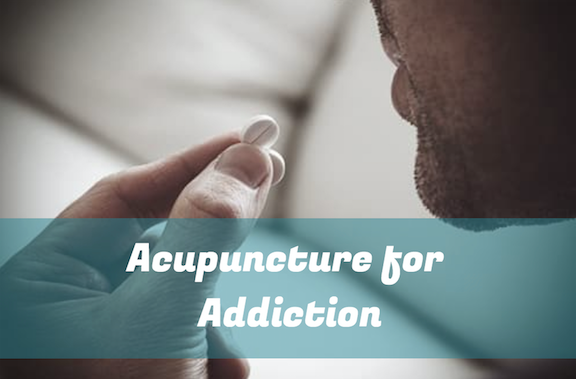Acupuncture for pain management in lieu of prescription drugs is one that is becoming increasingly sought after with the opioid epidemic happening in the United States. Health insurance companies are even starting to catch on with more & more insurances covering each year. Acupuncture works for a variety of pain related conditions. According to the Centers for Disease Control and Prevention, 46 people die every day in the United States from overdoses involving prescription opioids, and were involved in more than 35% (18,893) of all opioid overdose deaths. Luckily, with alternative medicine options emerging & becoming more mainstream like acupuncture, these numbers have high hopes of dropping in the coming years.
The Opioid Epidemic
In general, opioids are prescribed for a variety of reasons including surgeries, injuries, cancer, etc., but are most commonly given for pain management. The downfall is that these prescription opioids are highly addictive, and activate dopamine (also known as the “feel good”) neurotransmitters in the brain. The longer they are taken, the more dependent people become on them.
The most common prescription drugs that lead to overdose deaths:
- Methadone
- Oxycodone (such as OxyContin)
- Hydrocodone (such as Vicodin)
Statistics on prescription opioid use:
- About 21-29% of patients that are prescribed opioids for chronic pain misuse them
- 8-12% of those people develop an opioid use disorder
- 4-6% of those who misuse prescription opioids transition to heroin
- Around 80% of people who use heroin first misused prescription opioids
- According to the National Institute on Drug Abuse, in 2017, 1.7 million people in the United States suffered from a substance use disorder related to prescription opioid pain relievers.
Prescription opioids have been primarily used as a treatment for chronic pain of some variety since the late 1990’s, however, in recent years researchers are doubting their safety and efficiency. Along with potential risks outweighing the benefits of opioid treatment, western practitioners are at a junction where the opioid approach to treatment is becoming costly & incomplete or ineffective, and their patients end up overmedicated for issues that alternative medicine can solve. This dilemma has caused conventional medicine to re-examine and open up to the possibility of acupuncture treatments.
Acupuncture for Addiction & Pain
Acupuncture for the addiction of prescription opioids works because it increases dopamine production, and raises endorphin levels which allows the addicted person to manage physical & emotional pain of prescription opiate addition as well as withdrawal from it.
Acupuncture can help with prescription opiate addiction by:
- Easing the pain from withdrawal
- Decreasing anxiety
- Regulate emotions & sleep
- Reduce cravings
Acupuncture is not only helpful for those who are dealing with chronic pain that lead them to prescription opioids, but also for those who are already struggling with an addiction to opioids. When it comes to addiction to prescription opioids, it is usually acupuncture points in the ears that are used, known as auricular acupuncture. Acupuncture works because it increases dopamine production, and raises endorphin levels which allows the addicted person to manage the physical & emotional pain of prescription opiate addition as well as withdrawals from it while recovering.
There are 5 specific auricular points commonly used for the treatment of addiction:
- Shen Men – decreases anxiety & stress
- The Autonomic (or Sympathetic) – balances the nervous system (both parasympathetic or homeostasis and the sympathetic or “fight or flight” system) & encourages relaxation
- Lung – aids in addiction related lung issues & relieves feelings of grief
- Kidney – repairs vital organs, calms fears, & helps with kidney disorder
- Liver – removes toxins from the liver & blood, helps with hepatitis, and controls aggression
Some additional ear points used are:
- Brain – aids in addiction & sleep
- Limbic System – helps with compulsive & aggressive behavior
- Point Zero – used for homeostatic balance
These auricular points are helpful with a patient detoxing both emotionally and physiologically. Additional acupuncture points on the body may be used depending on the assessment, history, and TCM diagnosis given by the licensed acupuncturist being seen. Acupuncture is able to increase relaxation & pain relief which is very important in the recovery of an addict as physical pain & stress often correlates with prescription opiate addiction, or any addiction for that matter, and acupuncture is able to decrease both in an all-natural way.
As for someone who is suffering from chronic pain, and does not want to turn to prescription opioids to heal, surprise…. acupuncture works for chronic pain as well. The body is equipped with its own set of natural pain killers, and it is a licensed acupuncturists job to activate them through acupuncture points to provoke or tap into the self-healing mechanisms within our bodies. There are multiple studies as to the effects of acupuncture for multiple types of pain, as well as comparative studies with prescription opiates, all showing acupuncture coming out on top.
Acupuncture Research for Addiction & Pain
Research studies are popping up more and more on the effectiveness of acupuncture in a variety of conditions. Both chronic pain & addiction can make life unbearable, and with acupuncture, there is a way to heal in a way that is not harmful like prescription opioids have proven to be.
Acupuncture vs. IV Morphine for Pain:
- The goal of this study was to evaluate emergency department patients with moderate to severe pain, and assess their pain reduction as well as their pain reduction time when using acupuncture or morphine as treatment.
- 300 patients were included in the study with 150 in the acupuncture group and 150 in the morphine group treating acute onset pain.
- The success rate of the acupuncture group was an astounding 92% compared to the 78% in the morphine group. The resolution time to feel relief from pain in the acupuncture group showed 16±8 minutes compared to the morphine group which showed 28±14 minutes. Patients also associated acupuncture with faster and more effective analgesia with better tolerance.
- This study concluded that acupuncture should be considered as a treatment for acute pain to avoid adverse drug reactions.
2018 Acupuncture for Chronic Pain Meta-Analysis:
- The goal of this study was to update an individual patient data meta-analysis to determine the effectiveness of acupuncture for chronic pain conditions.
- Randomized trials were searched that were published up until December 31, 2015 and included acupuncture for nonspecific musculoskeletal pain, osteoarthritis, chronic headache, or shoulder pain. The main outcome measures were pain & function, and a total of 39 trials were used that met qualifying criteria which included 20,827 patients.
- Acupuncture was superior to sham as well as no acupuncture control for each pain condition. There was also clear evidence that showed the effects of acupuncture to persist over time. Overall, the conclusion was that acupuncture is effective for the treatment of chronic pain & persist over time, and cannot be explained solely in terms of placebo effects.
Acupuncture adjunct study for addiction:
- The goal of this study was to see if the National Acupuncture Detoxification Association (NADA) with the addition of conventional treatment such as 12-step orientation and a variety of other group therapies enhanced outcomes in quality of life, depression, anxiety, and abstinence from substance abuse.
- There were 100 patients enrolled in the study. 50 in the NADA group, and 50 in the control group with conventional treatment being provided to both groups. The acupuncture group received 5 bilateral ear acupuncture twice a week. The length of time was dependent on each individual patient; however, they were required to check in upon completion as well as at the 3- & 6-month marks.
- The research findings show positive results in the acupuncture (NADA) group with improvements in increased energy, likelihood of employment upon discharge of a rehab/recovery center program, feeling better about oneself, decreased alcohol use at the 3- & 6-month markers, and improvement in depression symptoms & quality of life.
Electroacupuncture as adjunct study for opiate addicts:
- The goal of this study was to see the efficiency of electroacupuncture when combined with the conventional treatment of methadone maintenance therapy (MMT) on opiate addicts.
- 106 patients from January 2015 – September 2016 who were undergoing MMT were recruited and separated into a control group and an electroacupuncture group. The electroacupuncture group received treatment twice weekly for 4 weeks at 15 minutes each.
- The study concluded that electroacupuncture proved to be beneficial because it increases opioid abstinence, and also improved quality of life in addicts.
There are many studies on acupuncture for various pain conditions as well as addiction, and they all seem to show positive findings. Large-scale studies are still needed to evaluate the impact of acupuncture as an alternative to opioid pain medications.
Acupuncture & Prescription Drug Abuse
The prescription opioid epidemic is a very real thing throughout the United States, and luckily, many western doctors are seeing the benefits of treatments like acupuncture to get it under control. Prescription opiates are being given at such a high rate, and now that more & more information is revealed about the terrible side effects (and mortalities) of the opiates, many people are even reluctant to take the prescription drugs for fear of addiction.
From 1999 to 2017, almost 218,000 people died in the U.S. from overdoses related to prescription opioids making the deaths five times higher in 2017 than 1999. This opioid crisis has re-established interest and belief in acupuncture for pain relief as well as relaxation to help wean those addicted off prescription drugs.
Those getting acupuncture treatments for both addiction & pain management has more than tripled since the late 1990’s. In fact, there are even many insurance carriers that are cutting opioid prescription coverage, and covering more alternative therapies in an effort to combat the opioid epidemic. Acupuncture has even gained the support of the U.S. Department of Veterans Affairs using battlefield acupuncture for issues like PTSD, anxiety/depression & pain, and most recently in January of 2020, Medicare for the treatment of low back pain.
If you know someone who is struggling to manage their pain in a healthy way, visiting a licensed acupuncturist for evaluation and treatment may be a helpful option. Ultimately, the best thing you can do is to be supportive, and help them on their journey to recovery & optimal health.

Acupuncture Near Me
Get acupuncture near you today with Best Acupuncture Near Me, and contact a local acupuncture practitioner to find out if acupuncture is right for you.

